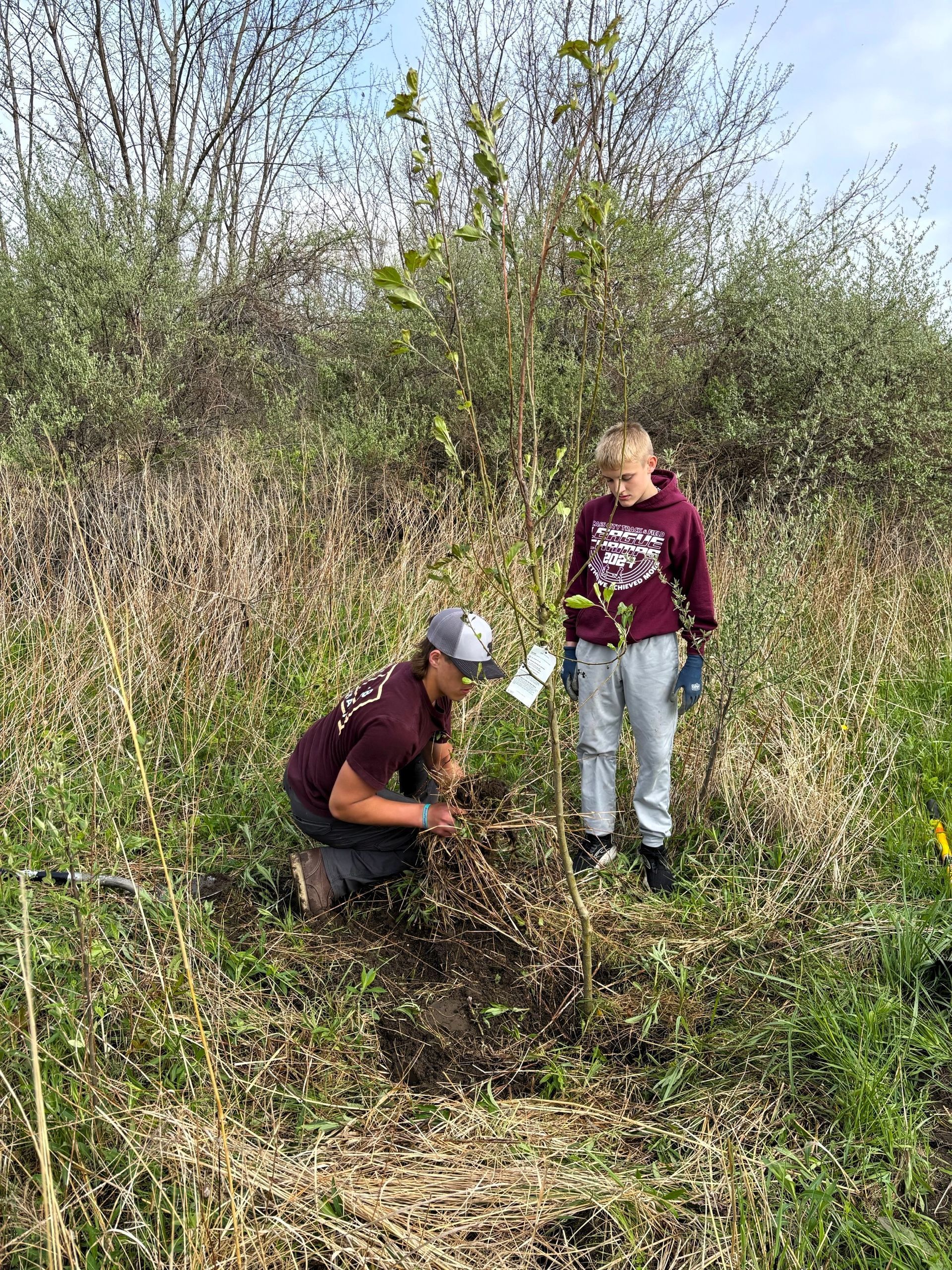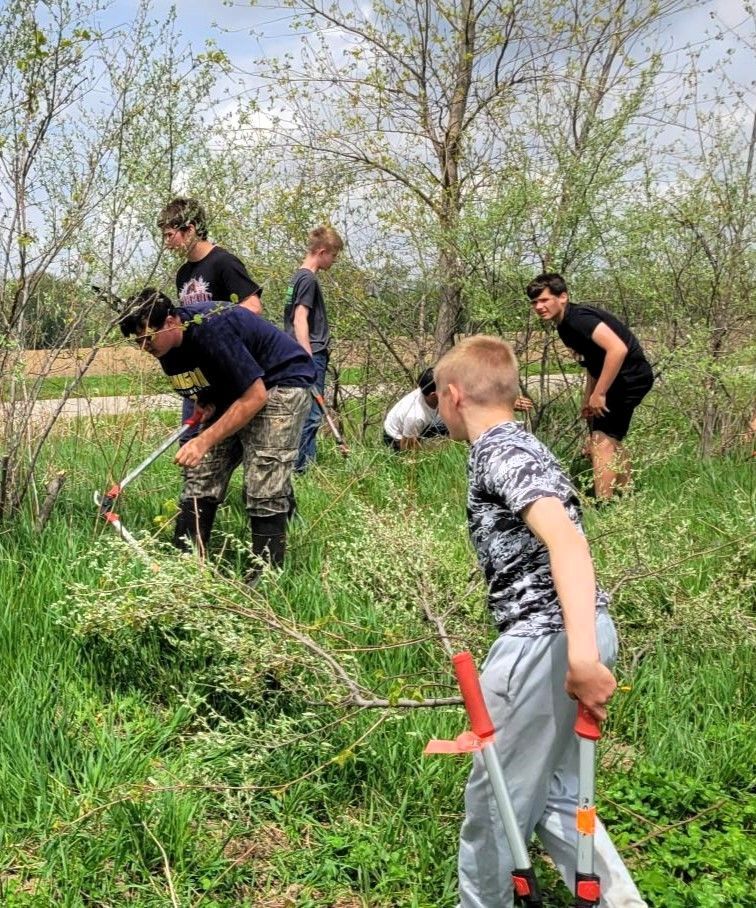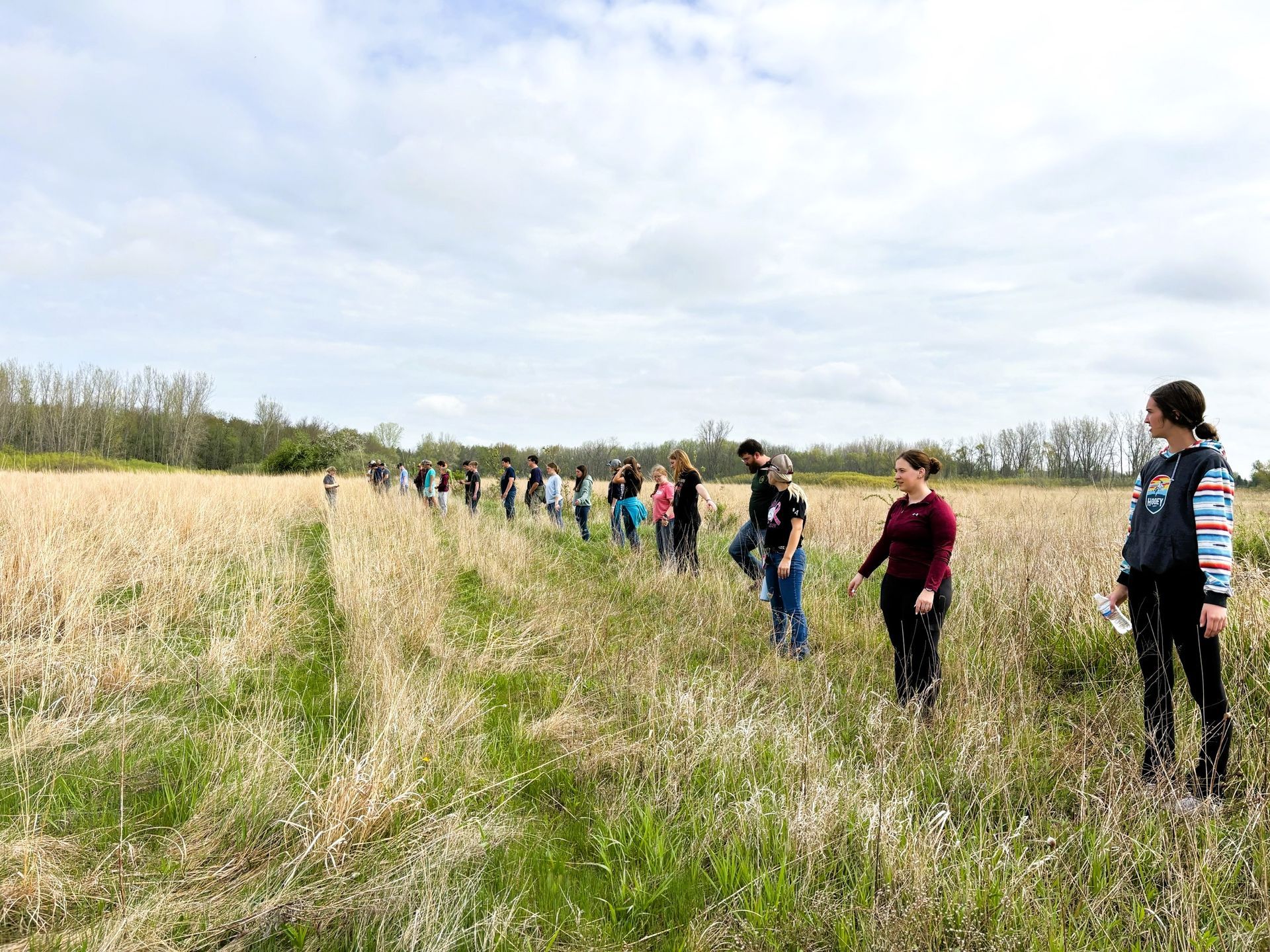The students got right to work and were eager to get some trees in the ground. They started out at Elmwood Township State Game Area planting 30 apple trees along an old fence row. Some students split up into groups to plant each tree, while others focused on unloading trees and staging them along the fence row. The trees were spaced around 20-30 feet apart to ensure that when they grow larger, they will not outcompete each other for sunlight and other resources. Funding for these trees was given through a written grant.
Apple trees are an important food source for many wildlife species. White-tailed deer, bears, foxes, turkeys, grouse, squirrels, and songbirds are some of the many animals that include apples as part of their diet. Songbirds will also use apple trees as a cover source to build their nests and protect themselves from the elements. Common species of songbirds that regularly use apple trees include bluebirds, flycatchers, robins, ruby-throated hummingbirds, and orioles (University of Maine).






